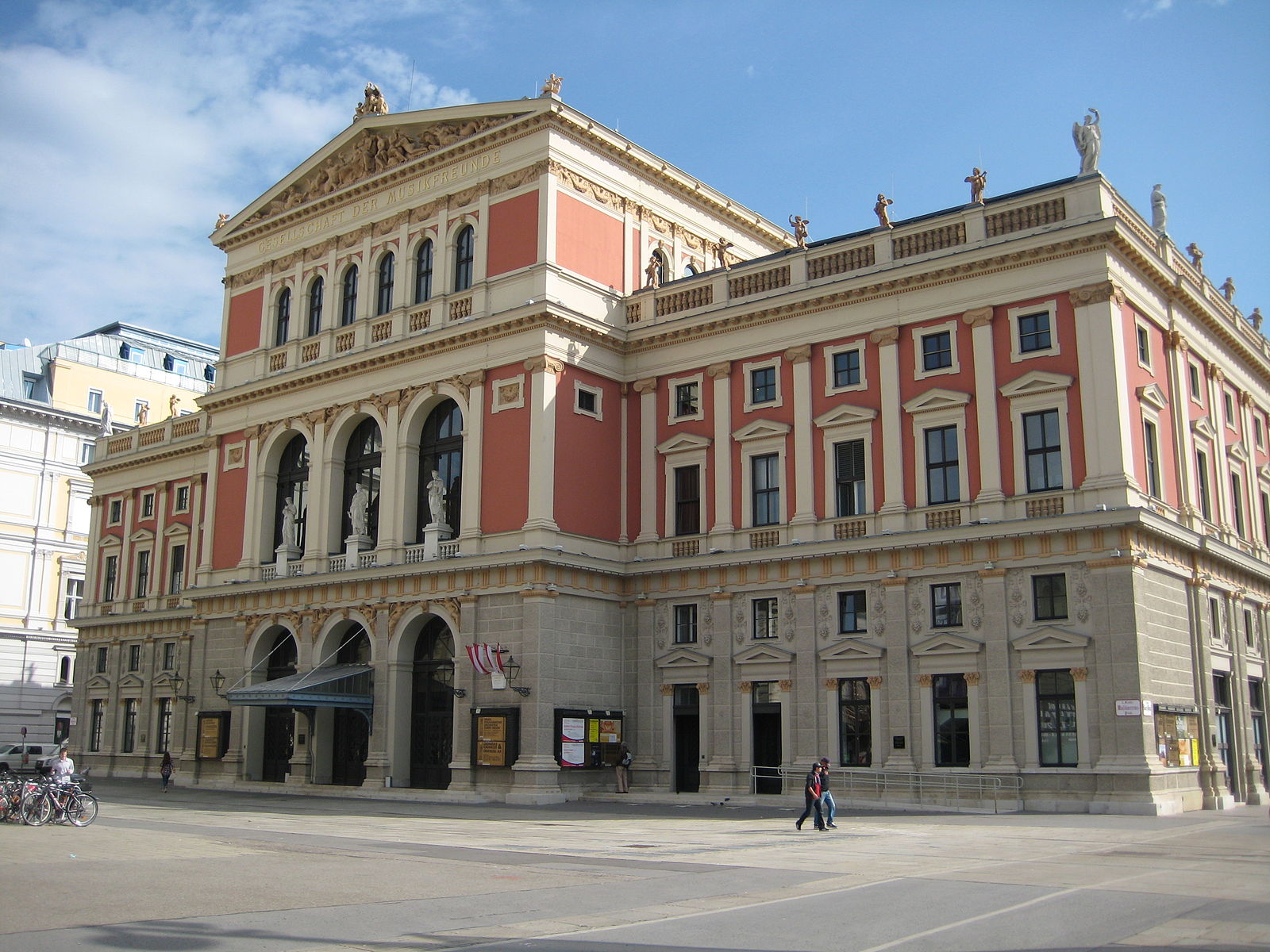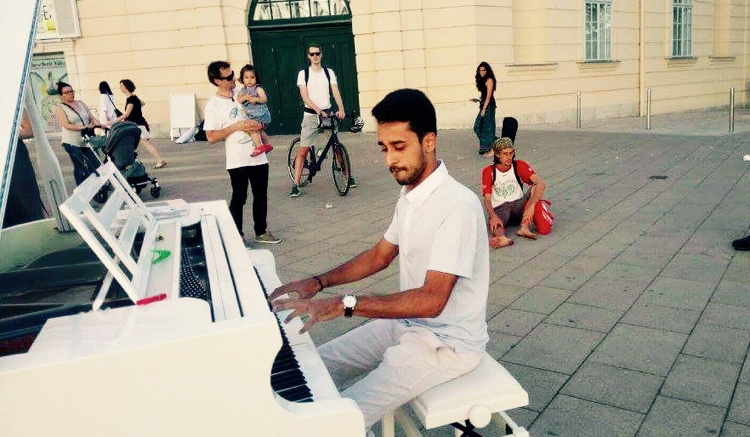A Summer Idyll – Continued

My senses had been heightened due to sheer anticipation when I arrived in the Austrian capital. It took me only a few hours to realise that Vienna truly was soaked in history. I felt like I had walked into the past, into the empire of the Habsburgs and into the stunning richness of all that they had accumulated. The air had a scent of regal extravagance, an atmosphere that had been immortalised in the numerous palaces and the equine ballet at the Spanish Riding School. The pinnacle of imperial grandeur was the Kunsthistoriche Museum, with an obscene quantity of imperial art that had been collected from over the centuries. Walking through its glittering, jewel-filled rooms, I was besotted by the majesty of it all, but my thoughts soon returned to music.
I decided to visit the Musikverein – the home of the Vienna Philharmonic. I was to attend a concert by the ‘Vienna Mozart Orchestra’, an orchestra dedicated to showcasing the composer’s versatile ouevre – overtures, symphonies, concertos and arias. Although the programme that evening consisted only of well known works, (Eine Kleine Nachtmusic, Papageno-duet, Symphony No. 40 etc) I savoured the atmosphere. The performers were dressed in splendid historical costumes that shone in the golden light. The crowd was clapping along to an orchestral version of ‘Alla Turca’ upon the conductor’s instruction. In Vienna, classical music was glamorous, yet inclusive. It was like being in the 1700s where Herr Mozart was the biggest rockstar in town.

Vienna has been home to Beethoven, Mahler, Haydn, Strauss, Schoenberg, and of course, Mozart. My stay felt even more fulfilling after I performed in the city centre of Vienna for Open Piano for Refugees, an initiative to gather financial support for refugees in Austria.

Playing on a pristine grand piano by the street was an interesting contrast from the grandeur and silence of concert halls. I knew that a smudged note would be forgiven, and could focus on being expressive. The atmosphere did not feel hampered by car horns or chatters, and the unusual setting beckoned crowds to hear the music above the noises of the city. Later, a singer, who performed an ingenious arrangement of the ballad ‘misty’, joined me for a jazzy encore.
By my last day, having finally overcome the hurdle of correctly pronouncing metro stops, I arrived just in time at my most anticipated destination in Vienna – the Mozarthaus. I was convinced I was in a dream when I saw a sign that read “You have just entered the apartment in which Mozart lived from September 1784 to April 1787.”
I was in the largest, most prestigious apartment Mozart ever lived in and his time here, arguably the most productive period of his life. It has been calculated that he wrote an astounding six sheets of music each day, despite his commitments to teaching and performing. Was I really standing in the room where he worked on Le Nozze Di Figaro and the D minor Piano Concerto? I tried to take it all in, every tiny little detail – scratches on the flooring, the colour of the paper, a little timepiece by the corner. I felt a strange unity in that moment, as though the bridge of time between the present and the past had dissolved. Glancing out of the window of the room where his simple desk stood, my thoughts drifted.
This idyllic summer escape, although enriching, did not meet my romantic, and perhaps unreal expectations. It didn’t change my relationship with anything I heard or played. It didn’t make a virtuosic scale passage simpler. It didn’t magically make me a better musician. Somewhere, I realised that travel was no substitute for study, and standing in Mozart’s apartment made no real difference.
I was bound by the power of music and its emotional force, not by time and place. I had learned to embrace, not escape, the bittersweet relationship I had with the piano- its monstrosity and its beauty, its affection and its tantrums.
I wondered how much the street outside could’ve changed and how some of the most beautiful music ever heard had been written in that room. Had life really changed at all in three centuries? Here we are, unchanged in our ignorance, slave to the contingency of what awaits us. While chasing some fleeting respite in this whirlwind of pain, it is the opening bars of the Fantasia that often comfort me- the slow, ascending arpeggios that are as beautiful to listen to no matter where I am. It is then that I realise that happiness is loyal perhaps only in the phantasmagorical world of sound.






